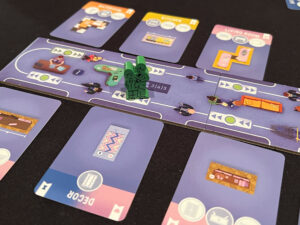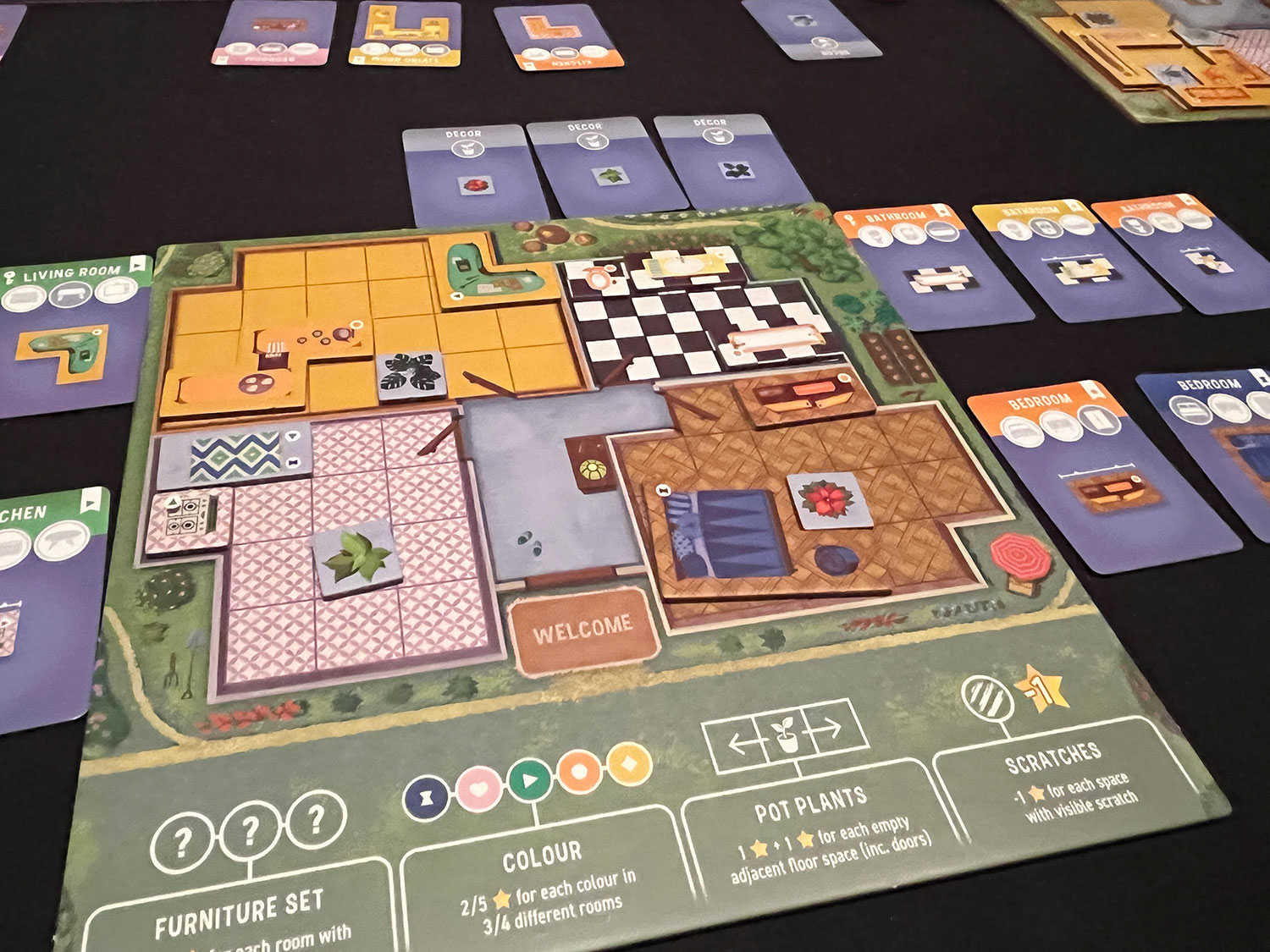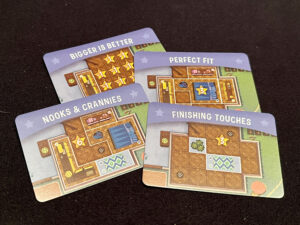 In addition to being one of our behind-the-scenes editors, my wife is also a really good Interior Designer (Don’t call her a decorator though. It’s not the same thing, trust me I know). But when a game pops on my radar with a theme even somewhat related to houses and designing them, I’ve got to get it for us to try. Right now, her favorites in this small genre are Floor Plan and Dream Home. Could this be the next one to grace our home-building shelf?
In addition to being one of our behind-the-scenes editors, my wife is also a really good Interior Designer (Don’t call her a decorator though. It’s not the same thing, trust me I know). But when a game pops on my radar with a theme even somewhat related to houses and designing them, I’ve got to get it for us to try. Right now, her favorites in this small genre are Floor Plan and Dream Home. Could this be the next one to grace our home-building shelf?
Time to check out Happy Home from Alley Cat Games. In this polyomino tile laying game, you are decorating your 4 room house trying to earn the most points.
Gameplay Overview:
Games of Happy Home are played over a series of turns that use a time track to determine who gets to go. The player in the back of the time track gets to take an action. They must move their Meeple around the track to the next furniture piece they want to collect. They can move as far ahead as they want, but the farther they move, the longer it will be until they get to go again.

Once chosen, the player collects the card and matching tile and places it in their home. Each tile has a matching room that it has to go into (except plants and rugs) and can be freely rotated. Once done, the player at the back of the time track takes their turn.
The game ends for a player once they can’t or don’t want to add more furniture to their room. They take the highest-value welcome mat and wait for the other players to finish. Players earn points for a set of furniture in each room, having 4-5 colors in each room, the scoring card for the game, plants, and lose a point for any scratch showing. The player with the most points is the winner!

Game Experience:
Happy Home is pretty easy to get to the table with its light ruleset. Move your person, claim the tile, and place it in your home. It’s all pretty straightforward. The only real challenge is understanding the ways you score. You want to diversify the furniture in your rooms, ideally having one of each of the three types. And you also want to make sure you have as many of the five colors in each room as well. Thankfully the end game scoring is displayed at the bottom of each board, so it works well to reference as needed.

What was unexpected is that, at its core, Happy Home is more about shopping for furniture than placing it in your house. Since each piece you draft has a specific room it has to go in, the only real choices to be made after you take a piece is where in the room to place it. And other than covering up a scratch, there really isn’t any reason to put it in one place over another. You can rotate it and make it look aesthetically pleasing, but at the end of the day, putting the stove in the middle of your kitchen isn’t going to cost you any points.
When it comes to the tiles though, it did feel like finding the tiles got a tad tedious. Once someone drafts a card, you need to dig through the pile of tokens and find the matching one. Before the game, we sort things into piles so it’s not so bad, but it also feels a bit unnecessary. The polyomino shape tiles don’t really add a whole lot to the game. For the most part, you will only be drafting a handful of tiles for each room, so it was rare when we ran out of space. And since it really doesn’t matter where in your room you place things, that whole part of the game felt pretty meh.
When it comes to player scaling, I think Happy Home definitely works better at the lower player counts. The available cards are truncated for fewer players, so you aren’t necessarily getting fewer items. But with more players, the downtime gets a bit longer. As there isn’t anything to do when it’s not your turn, the penalty for jumping ahead for a piece you really need can be a lot more punishing at 4-5 players than with 2. With two players it’s a nice tug-of-war where you take what you need, but jumping ahead usually isn’t too much of a big deal.
Final Thoughts:
Overall Happy Home is a good game, but one that doesn’t really stand out in any particular way. It’s more cozy than competitive, as the only player interaction is potentially taking a piece your appointing had an eye on. The mashup of tile laying and the time track was an interesting choice, as was the focus on acquiring tiles over where you are actually playing them. For me, I kind of wish those were flipped, with the positioning of your tile more important than what you are grabbing. But if you like the idea of focusing more on what you get than where it goes, this one could be worth giving a try.
Final Score: 3 Stars – A cozy home decorating game that is more about shopping than designing.
 Hits:
Hits:
• Easy to learn
• Interesting tug of war at 2 players
Misses:
• Decorating takes a back seat to collecting
• Digging for the correct tile can be tedious





















